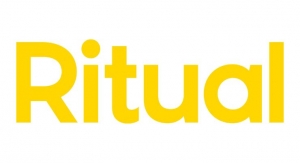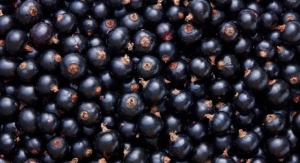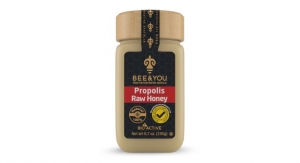09.24.21
Brands are evolving alongside consumer demands to offer more information and transparency about what’s in their products, where ingredients come from, and the overall environmental impact.
An Innova Consumer Survey indicated that 85% of consumers globally say that information about what’s in their food is of major importance to them. Similarly, 59% said they want to know where their food comes from and how it is made.
Interest is highest in emerging markets, probably because transparency is already more advanced in developed countries, while in emerging markets access to information through social media and online is increasing, driving demand for transparency.
“These greater levels of transparency not only build trust in brands”, according to Lu Ann Williams, global insights director at Innova Market Insights, “but also feed into many more specific considerations, including what is in the food in terms of natural ingredients and formulation, where it is manufactured, and what impact its production has on the environment and/or society.”
The clean label and clean eating concept has traditionally been most closely associated with a preference for pure and natural ingredients. However, this is gradually evolving to encompass many different aspects as consumers think more multi-dimensionally about making shopping decisions they can feel good about.
There has been a shift in focus from claims covering health aspects such as natural, organic, no additives and nothing artificial, into areas such as GMO-free and minimally processed. Innova also noted more interest in shorter/recognizable ingredients lists as well as dairy and meat alternatives. Fat, salt, and sugar reduction remain important too though.
“Clean label” has also come to encompass areas beyond the product itself into the ethical and environmental factors surrounding production. Innova noted claims related to human and animal welfare and increased focus on supply chain transparency and plant-powered nutrition as well as sustainable sourcing.
Transparency throughout the supply chain is set to dominate activity, with consumers searching for brands that can build trust, provide authentic and credible products, and create shopper confidence in the current and post-COVID climate.
The COVID-19 crisis appears to have intensified consumer interest in transparency and responsible production, and this is likely to persist going forward, Innova said. According to the market researcher’s survey, 28% of consumers globally said that trust had become more important to them over the past 12 months, while over a fifth specifically named transparency, which is instrumental in building that trust.
Technology will have a role to play in improving transparency, with 50% of consumers saying they are at least somewhat likely to check a QR code if it appears on pack, allowing suppliers to deliver farm-to-fork traceability.
“New issues related to sustainability are emerging all of the time,” said Williams. “Palm oil free is a relatively new idea, for example, but has quickly forged a position in the European market. Looking ahead, climate neutral schemes could make a bigger impact, while a new logo for upcycled foods is also likely to bring the idea of tackling food waste to the fore.”
An Innova Consumer Survey indicated that 85% of consumers globally say that information about what’s in their food is of major importance to them. Similarly, 59% said they want to know where their food comes from and how it is made.
Interest is highest in emerging markets, probably because transparency is already more advanced in developed countries, while in emerging markets access to information through social media and online is increasing, driving demand for transparency.
“These greater levels of transparency not only build trust in brands”, according to Lu Ann Williams, global insights director at Innova Market Insights, “but also feed into many more specific considerations, including what is in the food in terms of natural ingredients and formulation, where it is manufactured, and what impact its production has on the environment and/or society.”
The clean label and clean eating concept has traditionally been most closely associated with a preference for pure and natural ingredients. However, this is gradually evolving to encompass many different aspects as consumers think more multi-dimensionally about making shopping decisions they can feel good about.
There has been a shift in focus from claims covering health aspects such as natural, organic, no additives and nothing artificial, into areas such as GMO-free and minimally processed. Innova also noted more interest in shorter/recognizable ingredients lists as well as dairy and meat alternatives. Fat, salt, and sugar reduction remain important too though.
“Clean label” has also come to encompass areas beyond the product itself into the ethical and environmental factors surrounding production. Innova noted claims related to human and animal welfare and increased focus on supply chain transparency and plant-powered nutrition as well as sustainable sourcing.
Transparency throughout the supply chain is set to dominate activity, with consumers searching for brands that can build trust, provide authentic and credible products, and create shopper confidence in the current and post-COVID climate.
The COVID-19 crisis appears to have intensified consumer interest in transparency and responsible production, and this is likely to persist going forward, Innova said. According to the market researcher’s survey, 28% of consumers globally said that trust had become more important to them over the past 12 months, while over a fifth specifically named transparency, which is instrumental in building that trust.
Technology will have a role to play in improving transparency, with 50% of consumers saying they are at least somewhat likely to check a QR code if it appears on pack, allowing suppliers to deliver farm-to-fork traceability.
“New issues related to sustainability are emerging all of the time,” said Williams. “Palm oil free is a relatively new idea, for example, but has quickly forged a position in the European market. Looking ahead, climate neutral schemes could make a bigger impact, while a new logo for upcycled foods is also likely to bring the idea of tackling food waste to the fore.”




























